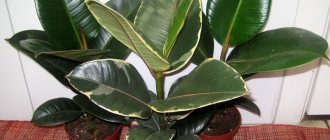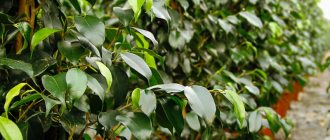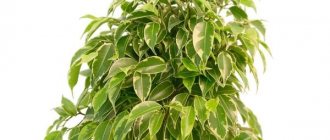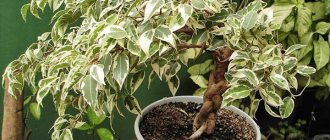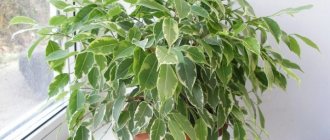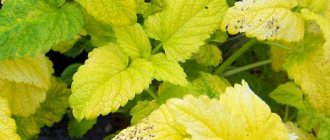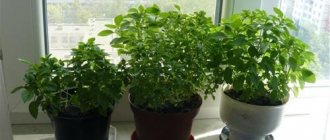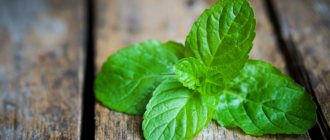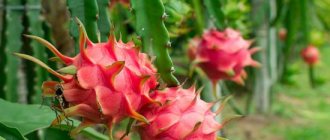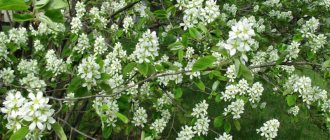Ficuses are plants that have long been "settled" in the houses and apartments of most flower growers. The unpretentiousness of many species allowed even inexperienced and novice gardeners to grow this plant without any problems. Large and small - they will decorate even a winter garden, even a small apartment. Considering that ficuses can be formed into a crown at their own discretion, as well as create hedges from them, braid in the most unusual way, you cannot argue with their originality and sophistication.
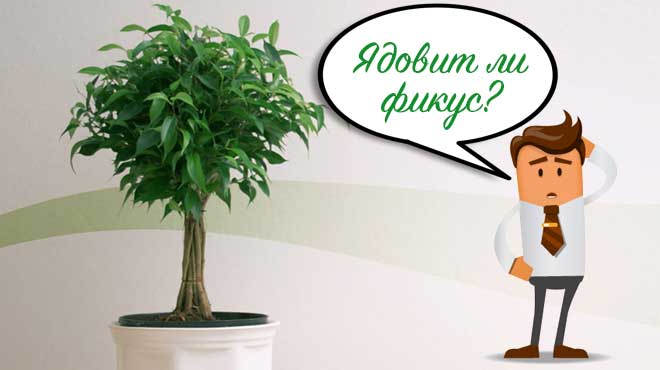
Experts are convinced that there would be more fans of rubber plants or other species of these plants if people knew for sure whether the ficus is poisonous or not. It is interesting that many who already have flowers of this kind do not even think about it, but in vain, since it is still necessary to know.
Benefits and harm to humans
Ficus is a perennial evergreen plant. It belongs to the mulberry family. The most famous representative of this genus is the fig tree, or figs. At the present time, many housewives decorate the apartment with a decorative flower called "Benjamin's ficus".
The broadleaf plant grows in the wild on the coast and islands of the Pacific and Indian Ocean, as well as in the Mediterranean and South Africa. One of the varieties of the flower, the fig tree, grows in Central Asia, Crimea and Transcaucasia.
Many centuries ago, people discovered the beneficial properties of ficus. It is known that the presence of this plant at home tuned its atmosphere to a positive wave. In addition, household members suffered less disease than others. But if the disease manifested itself in a person, then in a mild form. Ficus, possessing a calming effect, cleared the room of anxiety and worries.
The health benefits of this flower cannot be overestimated. It filters the air in the house and absorbs dust. Traditional healers say that it is useful for arthritis, mastitis, radiculitis. Ficus leaf is used to make infusions or lotions, and also apply compresses with them on sore spots.
Benjamin's ficus especially favorably affects human health. It is able to rid the air of harmful compounds: phenol, trichlorethylene and benzene. The benefits of ficus Benjamin are manifested in the fact that the flower converts these substances into sugars and amino acids.
However, the plant contains milky sap, which has a negative effect on humans and animals. If the juice gets on the skin, then the person may feel irritation. If a pet chews on ficus leaves, the likelihood of food poisoning increases significantly.
The rubbery type of indoor plant, releasing rubber into the air, can harm those people who suffer from bronchial asthma.
There is more than one contraindication in which ficus-based medicines cannot be taken. This category includes:
- children under 18;
- pregnant women;
- asthmatics;
- patients suffering from gastrointestinal diseases.
In general, ficus brings benefits and harms to humans, but it has more positive properties than negative ones. In this case, you need to provide good care for the plant so that it does not shed its leaves.
What is a ficus plant?
Ficus is an evergreen tree or shrub of the mulberry family that grows in the tropical climates of Australia, Asia and Africa. In the natural environment, the height of the plant reaches 20, and sometimes 30 m.In our latitudes, it is grown in room conditions and grows to a maximum of 2-3 m.
In nature, there are more than 800 species of ficus with various properties. Some are a source of rubber, others contain fructose and sucrose. There are also known species that have a therapeutic effect on the body.... But only a few varieties are suitable for growing at home.
Opinion and superstition about this plant are twofold. A flower lover is noted for its positive qualities:
- Ficus juice is able to purify the air from phenol and benzene. Substances are retained in the leaves, as in a kind of filter, and are gradually converted into sugar and amino acids. As a result of these processes, the air in the room is saturated with useful substances. The flower works best as a filter in the kitchen.
- It is also believed that the plant fights negative energy and creates a favorable emotional environment around itself. He is credited with the ability to harmonize family relationships and extinguish aggression.
- According to the popular Feng Shui teachings, a plant installed in the bedroom will ensure a happy family life and help, if necessary, to conceive a child.
However, the Slavs in ancient times treated ficus negatively. They believed that the waxy leaves of this plant carried unfavorable energy. The flower was forbidden to grow in the house, since it could provoke quarrels, envy, gossip.
Another negative property attributed to the plant by superstition is the ability to expel men from the house. It will be difficult for a girl who grows this flower to get married. If you bring a plant to a house where a man already lives, this will affect his psychological state.
All signs are meaningful only to those who believe in them. It is more important for a sane person to focus on scientific research and take into account only the physical properties of the plant.
Application in medicine
As you know, Benjamin's homemade ficus has medicinal properties. The main value is the sap of the plant. It helps in the prevention and treatment of benign and malignant tumors.
To prepare the medicine, you need to scroll through a couple of leaves in a meat grinder. Then put liquid honey in the juice and mix thoroughly. Drink the remedy for 1 tsp. daily. The course of therapy is 7 days, after which a rest interval of 14 days is made. Then the treatment can be repeated.
In addition to fighting neoplasms, ficus juice helps to cope with such diseases:
- Hemorrhoids. To get rid of bumps, you need to soak a cotton swab in the juice and place it in the anus overnight.
- Indigestion and dysentery. The remedy is taken for 3 days in 2 tbsp. l. every two hours. After a three-day period, the medicine is drunk three times a day before a meal.
- Mastopathy and fibroids. Such serious diseases are treated according to the following scheme: 1 tsp. ficus juice before meals is taken once a day. The duration of therapy is 1 week. After a break of 2 weeks, the treatment can be repeated.
- Depressive state. 3 drops of juice are dripped onto a piece of refined sugar, and then little by little they dissolve it. After taking the product, you can not drink liquid for 15 minutes.
- Hematoma. The sap of the plant is mixed with coarse flour, and cakes are formed from the mixture. They are placed on the affected area in the form of a compress.
- Toothaches. The juice must be diluted in 70% alcohol and left for 24 hours. A few drops of the product are applied to the aching tooth.
For articular diseases, boils, warts and wen, tincture is used. To prepare it, you must follow the following instructions:
- A couple of plant leaves are placed in a container and poured with 1 glass of alcohol or vodka.
- The dishes are placed in a cool and dark place for 14 days.
- After two weeks, 1 tbsp is put into the tincture. l. liquid honey and the yolk of a chicken egg.
- The tincture is stored in the refrigerator for 14 days.
With such diseases of the respiratory system as bronchitis and tracheitis, honey compresses based on the leaves of the plant help.
Nevertheless, before using folk remedies, it is imperative to consult a doctor.
Most diseases require strict medical treatment, the use of folk remedies is secondary.
Homemade recipes for joint treatment
The plant is indispensable in the treatment of joint pain, deforming arthrosis and arthritis.
Recipe 1. Grind a couple of leaves, add 1 tbsp to the resulting gruel. l. salt and liquid honey. Stir, insist for half an hour, apply on a gauze bandage and apply to a sore spot for 15-20 minutes.
Recipe 2. For 300 ml of medical alcohol, take 3 leaves, 10 ml of camphor and iodine each, mix and insist in a dark cool room for 3-4 weeks. The resulting infusion is used for rubbing.
Recipe 3. Pour three large leaves with a glass of vodka and leave for 14 days in the cold, tightly closing the lid. After that, you need to add chicken yolk and 1 tbsp. l. honey, mix and use for rubbing and compresses. It is necessary to store the product in the refrigerator, but no longer than 2 weeks.
Signs and superstitions regarding ficus
In the pre-revolutionary period, it was believed that it was dangerous to keep a ficus in a residential building. However, during the Soviet era, the opinion about the usefulness of the indoor flower changed significantly.
Many believe that if there is a ficus in the house, then it fills it with positive and light energy, saving all household members from evil spirits.
If in our country it is an ordinary indoor flower, then the inhabitants of Thailand and China consider it sacred. They try to plant it in all sorts of places. Moreover, the Thai flag depicts a ficus - the national symbol of the state.
The Chinese give the plant for significant dates - birthdays or anniversaries. It is believed that the ficus transmits its desire for life to its owner.
If the bedroom is decorated with ficus, this contributes to the conception of a child. It is believed that it helps even childless couples to have children. The flower is also placed in the kitchen so that there is always food there, and the household does not know what hunger is. The higher it is and the more leaves it has, the more well-being there will be in the house.
At the same time, they buy a houseplant only for the growing moon, and pay for it with an odd amount of money. When a ficus is presented as a gift, a small sum of money is given for it as a token of gratitude.
Ficus has more than one useful property. Its presence in the house provides air filtration, freeing it from harmful substances. Ficus Benjamin juice is used for the preparation of infusions and tinctures for joint diseases, dyspeptic disorders, hemorrhoids, mastopathy and other pathologies.
However, taking it in childhood, during pregnancy, asthma or stomach diseases can provoke the development of undesirable consequences. In any case, the main condition must be fulfilled - to consult a doctor who will sensibly assess the need for taking folk remedies based on a plant.
Features of the treatment of allergy to ficus
Treatment will only be effective if any contact with the allergen is eliminated. For this reason, it is desirable abandon the content of ficus... If the disease is already developing, it is advisable to conduct a special treatment course aimed at guaranteed elimination of unwanted symptoms.In this case, the treatment can be medication and folk, and it is often recommended to combine both directions for greater efficiency.
Drug treatment
When treating allergy to ficus, it is advisable to take special medications:
- Ginko Plus... This drug has antihistamines and corticosteroid components, as a result of which it exhibits a high level of effectiveness. It is advisable to drink one tablet twice a day.
- Ruzam... This drug is available in various forms, but it always turns out to be quite useful.
- Cromones... These drugs are used prophylactically or at the earliest stage of allergy detection. This group of medicines includes Nedocromil, Kromoglikat.
Drug therapy has a high level of effectiveness, but it can only be carried out under the close supervision of an experienced physician.
Folk remedies
If you decide to use non-traditional means, you can count on a higher level of treatment effectiveness:
- An infusion of 5 carrots, 2 apples, one bunch of fresh parsley, two small cauliflower inflorescences helps to strengthen the immune system. This mixture is drunk three times a day about half an hour before eating.
- One gram of mummy, dissolved in a liter of warm water, shows a high level of effectiveness. The tool is taken once a day, 100 milliliters.
- Natural celery juice is also recommended for ficus allergies. Take 1 - 2 teaspoon three times a day.
- A tablespoon of chamomile inflorescences is poured with boiling water, insisted in the heat for about half an hour. Then take a tablespoon twice - four times a day.
Medication and alternative treatment can be effective only if the ficus is abandoned, since otherwise constant contact with the allergen turns out to be extremely dangerous.
Are all ficuses harmful?
It does not depend on the variety of culture, it does not matter if you buy it for the office or home. According to the results of numerous studies, it was found that it is in the top three in terms of the number of allergens, second only to pets and ticks.
The culture secretes milky juice, in which rubber is present, it adversely affects the well-being of asthmatics. Milky sap is considered poisonous. If milky juice gets on open areas of the body, irritation may begin. Care must be taken if there are pets in the apartment that can chew on the poisonous leaves. If you follow the precautions, then in general to the question of whether ficus is harmful, the answer should be “no”.
The harmful effects of ficus on the respiratory tract
Dust mites and pet hair are common allergens in humans. According to statistics, in third place is an allergy to ficus of any kind, home or growing in the tropics.
Is Benjamin's ficus poisonous or not? The fact is that a home ornamental plant has its own characteristics. Its large variegated leaves love sunlight. When moved to a shaded place, the flower can become sick and begin to secrete harmful sap. Microparticles, evaporating from the leaves, fill the air space of the room.
People suffering from allergic diseases - hay fever, allergic rhinitis, bronchial asthma, feel a worsening of their condition by inhaling aerosols in the air. Moreover, the amount of substance is not important for the development of the reaction. For allergy sufferers, the answer to the question whether ficus is a poisonous plant or not is unambiguous. For them, the tree is poisonous. To a greater extent, this applies to persons suffering from latex intolerance - an allergen contained in ficus.
Signs and superstitions
In the pre-revolutionary era, the plant was considered not very favorable, but changes took place in the Soviet era, which does not accept arguments from the past. In Russia, there is an opinion that if you keep such a flower, then it is able to save the house from evil spirits and charge the room with positive energy.
In different countries, many signs are associated with this culture. For example, in China and Thailand, ficus is revered as sacred and they try to grow it in any available places. On Thai flags, the image of this flower belongs to the national symbol of the country. In the photo, it looks harmonious.
For the Chinese people, this is not just a beautiful flower, it is also customary to give it to relatives or friends on a significant date. For special holidays, some people donate a photo frame with a picture of a sacred flower. It is believed that the plant transfers its stamina and thirst for life to the one to whom it is presented.
Today, we can say with confidence that the flower is favorable for your home and will bring you only good things. Many childless couples claim that after they acquired such a culture, they were able to conceive a long-awaited child. There is a sign that you need to put it in the kitchen area where you cook and store food, then you will not know what hunger is. The higher the plant, the more luck it will bring you.
A flower can be purchased for home if:
- pets do not gnaw the leaves of flowerpots;
- the household is not allergic to the plant.
If there is no threat to health, then the plant can be kept in the apartment, it is not harmful. The flower is considered more beneficial than harmful. In order for him to receive only benefit, he must be properly looked after. If you abandon the plant and stop leaving, then the culture can, in protest, arrange leaf fall or take offense at its owners and stop growing. How the ficus sheds leaves can be seen in a photo or video.
You should buy a plant only if you follow all the conditions for it. It is recommended to buy a flower exclusively for the growing moon and an odd amount of money should be paid for it. If you accept a flower as a gift at no cost, then you can pay for it with an odd number of any small coins as a token of gratitude.
What does a ficus look like
Ficus is a representative of the Mulberry family. Hot countries are the birthplace of evergreens. Ficuses are more suitable for growing in an apartment, no more than 2 m in height:
- Benjamin;
- Benedict;
- Bengal;
- Lyre-shaped;
- Dwarf.
Despite the fact that outwardly the flowers may differ, they do not tolerate cold, shading, and drafts.
The stem of an adult plant is lignified. But young shoots are flexible. For indoor ficuses planted nearby, you can intertwine the stems, as in the photo below. The shape of the bush must be shaped, trimmed so that the ficus does not grow one-sided.
The leaves of plants are often rounded with a waxy bloom. There are patterns on the green leaves. Ficus blooms rarely and only if it is looked after with love.
The benefits of the plant
In addition to the obvious benefits of decorating the home, some other useful properties can be found in ficus. For example, a ficus in an apartment has the ability to purify the air, fill the atmosphere in the house with oxygen and even absorb certain toxic substances harmful to humans. The smart flower converts such substances into harmless elements, and all this thanks to the special enzymes contained in its leaves.
So, despite all the notoriety, the ficus fits perfectly into the bedroom and even the nursery. Its benefits are especially evident in the bedroom, because the oxygen-rich air will contribute to a longer and healthier sleep and generally a good, full rest. If a pot with a flower is placed in the kitchen, then it will begin to diligently clean the air from harmful substances there too.
Its other amazing function is air disinfection.The plant has the ability to destroy many pathogenic microbes and harmful bacteria that cause diseases.
Drugs for treatment
The first step in getting rid of a ficus allergy is to eliminate contact with the allergen.
It is advisable to do this immediately after the first allergic symptoms appear.
If the disease has begun to develop, then it is necessary to apply medication methods of treatment.
The most effective drugs are:
- Ginko Plus - perfectly fights against the manifestations of seasonal allergies. Its effectiveness is associated with its constituent antihistamines and corticosteroid substances. For adults, take one tablet twice a day.
- The drug "Ruzam" in the form of a course of injections, as well as sprays and nasal drops - help to cope with the symptoms of an allergic reaction to both ficus and dandelion.
- Cromones - these substances are worthy of attention due to the fact that they practically have no side effects or contraindications. They can also be used to prevent allergies.
Antihistamines of the 2nd and 3rd generation, for example, "Zirtek" or "Claritin". Adult allergy sufferers need to take these drugs one tablet once a day.
Healing properties
In the wild, there are a great variety of various ficuses. There are more than a thousand of them. Among them you can find not only small bushes, but also whole trees, there are even vines. The ficus family, for example, includes such familiar fruit-bearing trees as figs and mulberries.
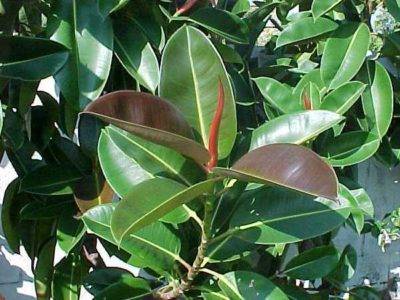

For home floriculture, usually low-growing varieties are used, a particularly popular species among the green army is Benjamin's ficus and rubbery. tart is a bush with leaves bordered along the edge with a light strip. It is rather atypical for indoor representatives of its kind. Rubbery ficus is a plant with large oval leaves. This plant contains a special juice called milk or milky juice, it is often used in alternative medicine recipes. But at the same time, the release of rubber is not always good for health.
The healing properties of ficus are quite different, they are widely used in alternative medicine, among which oriental medicine should be noted separately.
- 1Mastopathy is treated by rubbing the breast with ficus infusions, which also prevent the appearance of malignant tumors.
- 2 Folk medicine believes that ficus can help reduce benign formations such as fibroids and fibroids.
- 3Cold compresses from pre-frozen milk juice are used for hematomas. Another option for therapy in this case is to finely grind the leaf of the plant and apply the resulting mass to the diseased area of the body. This treatment option applies to diseases such as sciatica, arthritis, osteochondrosis.
- 4 Ficus juice is used to prepare quite effective antihemorrhoid suppositories. Juice diluted with plain water in advance is placed in a freezer in special molds, the course of therapy lasts 1-2 weeks.
- 5 With the help of medicines made from or based on ficus, they treat toothaches and remove tumors in the mouth, treat boils and even cysts near the teeth.
- 6The roots and leaves of Benjamin's ficus, boiled in oil, are used to treat bruises and bruises.
- 7The juice of the bark of the same species of ficus in milk is used for liver diseases. For rheumatism and headache, poultices of crushed leaves and plant bark are used.
In this direction, the use of only some varieties of ficuses is allowed. Always remember that you should never mindlessly experiment with medicines and thereby put your health at risk. Before using any remedy made according to prescriptions of alternative medicine, a doctor's consultation is necessary.Otherwise, you not only will not receive the benefits of the treatment, but also risk causing severe harm to your health.


Ficus allergy treatment methods
The most effective treatment is to eliminate contact with the allergen.
But, if the disease is already progressing, it is necessary to rid yourself of the torment. There are two methods of treatment: medication and folk. There is also a system of rules that can be applied not only for prevention, but also as a basic basis for "healing". So, the treatment of allergy to ficus with drugs:
- Ginko Plus. Also quite a worthy representative of the family of drugs fighting seasonal provocateurs. The composition contains the aforementioned antihistamines and corticosteroid substances. Take one tablet about twice a day.
- The course of injections with the medicine "Ruzam", nasal drops, sprays - all these are also quite popular drugs for allergy to dandelions.
- Cromones. They are used for prophylactic purposes and in the very early stages of detecting allergies. Representative drugs: "Nedocromil" and "Kromoglikat".
Potential harm
We figured out the useful and even healing properties of this indoor plant. How can it turn out to be harmful, and why in general could superstitions arise, so inappropriately related to ficuses?
Ficus at home can be of great benefit to the microclimate of the rooms. Many varieties are allowed in apartments and offices, but there are also varieties that can cause very real harm to the health of the inhabitants of the house. Certain varieties of ficus plants contain highly toxic sap. In the case of them, there is no question of any use in alternative medicine. They become especially dangerous if small children and pets live in the house.
Even common varieties of ficus plants require special attention. Their juice can easily cause allergies, and depending on the characteristics of your body, allergies can be severe. So if you are aware of your allergic predisposition to house plants, you do not need to contact the plant sap without gloves, even if the plant variety is not poisonous. Alternative medicine recipes that include a dubious component like juice or ficus constituents are quite difficult to determine on your own. The amount of juice can be determined incorrectly, and this can easily turn into unpleasant or simply unexpected consequences. In treatment, you should still prefer proven remedies and once again not risk your health.
Rubber ficus and other varieties that emit rubber are undesirable to place in bedrooms and children's rooms. For obvious reasons, such an indoor flower is contraindicated for asthmatics.
Perhaps superstitions appeared precisely because ficuses are not equally useful to everyone. But if you learn more about them, then one amazing thing can be noted: only Slavic peoples speak negatively about this plant. We are the only ones who are suspicious of them. All other nations more often see the positive properties of ficuses in the house. For example, the now widespread Ayurveda is more than favorable to them, believing that they are capable of beneficially changing the energy of the room. According to Ayurveda, these plants are able to cleanse the house of any negative emotions.
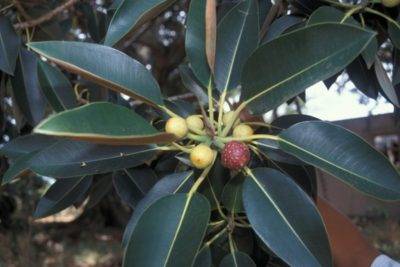

Symptoms
Ficus allergies can vary dramatically from person to person. It should be understood that much is determined by the individual's personality and the duration of contact with a potential allergen.
If a person discovers any undesirable sign of immunity, it is advisable to consult a specialist to confirm or deny the alleged diagnosis. If, nevertheless, an allergy to ficus is confirmed, you will need to conduct a full course of treatment and abandon the home plant.
Allergy to ficus is manifested by the following symptoms:
- Profuse lachrymation.
- Redness of the mucous membranes of the eyes.
- Sneeze.
- Runny nose.
- Edema.
- Pronounced skin rashes.
- Swelling of the mucous membrane of the nasopharynx, as a result of which there is a violation of respiratory functions.
- Edema of the skin, which manifests itself after the ingestion of ficus juice on the human body;
- Cough.
- Exacerbation of asthma with a corresponding chronic disease.
- Anaphylactic shock (this symptom manifests itself in exceptional cases).
It is important to understand that even mild manifestations of an allergic reaction are quite dangerous. For this reason, a mandatory visit to an experienced doctor is required to conduct examinations and determine an accurate diagnosis. If a ficus allergy is diagnosed, improvement in health will be possible only after refusal to contact the allergen.


Folk omens
Home ficus is such an ambiguous plant that beliefs about it literally pass from mouth to mouth, from one generation to another. And although it is easier for us, according to the prevailing mentality, to always pay attention to bad qualities, you can see many positive features in this flower.
For example, this flower is a kind of amulet for family life. Chinese legends say that he brings peace and comfort to the house, brings energy to a harmonious state, promotes quick problem solving and finding a way out of difficult situations. Many nationalities even have a belief that the plant helps childless couples to finally acquire the desired offspring. It is because of this that he is often placed in the bedroom, guided not so much by the ability to clean the air, but by such a sweet omen. Moreover, if you put it in a new pot, and it will give young shoots, this is a harbinger of the desired pregnancy.
The Slavs have two opinions. According to some beliefs, only varieties with "wax" leaves are endowed with negative properties. Such ficuses, in spite of the whole family of this plant in many other cultures, will bring evil quarrels and scandals into the house. And in general, it is believed that he develops scandalousness in his owner, reveals all his negative qualities, contributes to the emergence of envy of more successful people. The signs of the Slavs also say that the ficus takes love and harmony out of the house. He does not allow possible life companions to the woman, she will not be able to start any normal relationship. Thus, everything about the presence of a ficus at home in the beliefs of the Slavs is interpreted from the standpoint of the negative impact of the plant. The rest of the world ascribes exclusively positive properties to it.
Despite the great diversity of opinions regarding this gorgeous decorative flower, no one will deny the mass of its advantages. He is able to cleanse your house of harmful substances and even, if you believe the signs, put in order the energy. Ficus fills the house with oxygen, kills pathogenic microbes, and is simply a decoration for any room. The main thing to remember is that not all varieties of ficuses are harmless, there are poisonous varieties that are especially dangerous for pets and small children. If you take into account all these points, then no beliefs can spoil your enjoyment of such a beautiful and useful flower in your apartment.
Ficus allergy treatment
Ailment therapy provides several options. But first of all, you need to get rid of the allergen. Ficus must be removed from the house. Without this, the treatment will not bring the desired result. In addition, medication is required. This could be:
- "Ginkgo Plus", the drug contains antihistamines and corticosteroids;
- Ruzam, injections to relieve symptoms of the disease;
- Cromones - funds can be used both for prophylaxis and at the onset of the disease. These drugs include Nedocromil and Cromoglycan.
It is not uncommon to recommend taking sorbents, local remedies and vitamin complexes to strengthen the immune system. The decision on taking a particular drug is made exclusively by the allergist. He also selects the dosage and recommends the diet. Another option for solving the problem is the methods that came out of the people.
Is it worth growing ficus at home
Absolutely all ficuses were brought to us from tropical countries, although some representatives are also found in temperate climates, for example, in the Crimea or Central Asia. There are quite a few varieties of ficuses, and almost all of them are very useful plants.... One type of ficus is rubbery, that is, rubber is extracted from this plant.
In many tropical forests, animals and birds feed on the fruits and leaves of such plants. While insects eat their bark with pleasure.
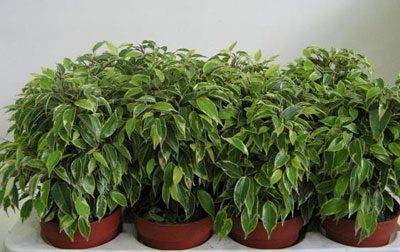

A wide variety of ficuses are grown for decorative purposes. This is Benjamin's ficus, a rubbery and even a plant called sacred ficus, which is very reminiscent of the Japanese bonsai tree. All species are attractive in their own way, but require different care. Almost all decorative ficuses are small trees and shrubs, but with a strong desire, you can grow a full-fledged tree from them.
Like other indoor plants, these decorative flowers have a special energy that is beneficial for any person:
- This vegetation disposes people to sociability.
- People are trusting of each other.
- Better relationships between colleagues and family members.
This explains the fact that these plants are often found in offices and public buildings.
There is a beautiful belief that if you give a ficus to a childless couple, then very soon they will have a child. Interestingly, on the Internet, you can find a lot of rave reviews from parents, whom this sign helped.
The benefits of ficus "Benjamin" for the home
Ficus "Benjamin" is very useful for home. One of the advantages of a flower, and perhaps the most significant one, is its ability to purify and improve the air in the apartment.
Recently, various sources of information have been trumpeting about the harm caused by modern building materials to human health.
Failure to comply with environmental standards in the manufacture of wallpaper, laminate, plastic windows and panels leads to the content, and subsequently to evaporation, of such harmful, toxic substances and compounds as formaldehyde, benzene, phenol, toluene, ethylbenzene.
One can only guess what bouquet of diseases one can get by inhaling these vapors every day.
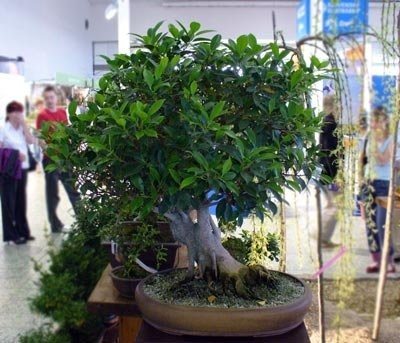

You can solve the problem by buying fabulously expensive materials, but not everyone can afford it, nevertheless there is a way out of the situation, and it is quite simple and cheap.
Many indoor plants have the ability to convert toxic substances into non-toxic ones and oxygenate the air in your home.
And the most popular of them are: tradescantia, chlorophytum, ivy and ... the ficus "Benjamin".
So thanks to this kind of talent Ficus Benjamina you can noticeably improve the air quality in the house. But this is not its only advantage.
Beneficial effects of a flower
"Benjamin" is able to improve the energy in the apartment. absorb negative emotions and set people up in a friendly way.
Put it in the kitchen! Where else should a warm atmosphere reign? Of course, in a place where the whole family gathers.
Not only the ficus "Benjamina" has such properties, but also other varieties, such as: Small-leaved, Black Prince, Balsamina.
There is a belief that if a woman cannot get pregnant for a long time, you need to put this plant in the bedroom, take care of it like a child, groom and pamper (which by the way "Benjamin" loves very much, as he is quite capricious and fastidious in leaving) and after a while the woman begins to produce a special hormone, thanks to which the long-awaited event, pregnancy, begins.
Believe it or not, everyone's business, but if such a fairy tale exists, it originates from somewhere, so no one is forbidden to check this sign.
Is ficus poisonous


We can say with confidence that the ficus is poisonous. In all parts of the plant there is a sap that closely resembles milk. When the juice and parts of the plant get on the skin, in the eyes or in the stomach, the following changes occur:
- Allergic reactions that manifest as hives or a merged rash.
- Itching and burning sensation is felt on the skin.
- In case of contact with the eyes, a burn of the mucous membrane is possible and, as a result, deterioration of vision.
- When swallowed, symptoms of acute intoxication occur, which are manifested by vomiting, diarrhea, headache, convulsions and confusion. In especially severe cases, a person may fall into a coma.
This plant is especially dangerous for young children, pregnant women and pets..
If a leaf or stem is swallowed, it is necessary to rinse the victim's stomach, give adsorbents and call a doctor. If the juice gets on the skin or eyes, rinse them with plenty of running water. If vision persistently deteriorates, hospitalization may be required.
Ficus Benjamin allows you to clean the air in the room from harmful substances, but it should not be turned on by people who are prone to allergies.
Signs of an allergic condition
Symptoms can vary significantly from patient to patient. It all depends on the personality of the person, the duration of contact with the allergen. The substance itself also affects the manifestations of the problem. In any case, as soon as a person discovers any sign of the disease, it is necessary to consult a specialist.
Symptoms:
- increased separation of tear fluid;
- redness of the mucous membranes of the eyes;
- constant sneezing, runny nose;
- swelling and severe skin rashes;
- burns of the skin upon contact with plant sap;
- swelling of the nasopharyngeal mucosa;
- attacks of choking, coughing;
- exacerbation of asthma;
- less often - anaphylactic reactions.
Important: the manifestations of plant allergy are quite dangerous. Surgery by doctors is necessary. And most importantly, ficus should never be placed in a bedroom or children's room! Especially if a person is prone to plant allergies.
How to prevent indoor flower poisoning


In order for ficuses to bring only aesthetic pleasure, and not harm a person, it is worth adhering to certain safety rules:
- It is necessary to take care of the plant only with gloves and with great care.... You should not entrust pruning or transplanting shrubs to children of any age, as well as people who suffer from allergies.
- Do not put this poisonous plant in the nursery, as well as on the floor where pets can get it.
- After watering, pruning and replanting vegetation, hands are thoroughly washed with soap.
If someone in the family suffers from a pronounced allergic reaction, then it is better to abandon the ficus in the house... This will prevent the development of a severe form of the disease.
What kind of ficus plant
An evergreen tree or shrub of the Ficus mulberry family at home in Asia, Australia, Africa reaches 20 meters. Indoor domestic species do not exceed a height of 2-3 meters.
Read also: Building permit for garden plot 2018
There are over 800 species of this plant.growing in natural conditions or apartments. Basically, ficuses are evergreen, deciduous ones are found. There is a creeping species decorating lawns. Florists breed the tree-like rubber genus Elastica. Small-leaved Ficus benjamins are grown under room conditions.
The attitude to the plant among different peoples is ambiguous. The Bible considers the plant to be a symbol of prosperity and prosperity. According to popular belief, the flower brings replenishment to the family.Muslims and Buddhists consider it a sacred tree. No wonder the emblem of Thailand contains a fragment of a fig leaf.
Lovers of vegetation are interested in whether it is possible to keep rubber ficus at home. Experts do not recommend growing ficus at home if family members suffer from skin diseases or respiratory tract diseases. The poisonous properties of the plant affect primarily the skin and bronchi. Contact with the plant aggravates eczema, dermatitis, allergic bronchitis, rhinitis.
Medicinal use
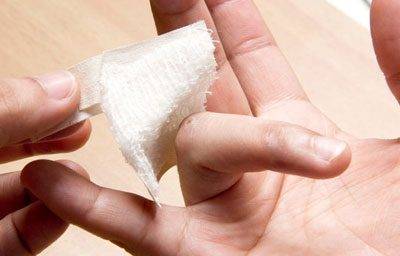

Not all people know whether ficus is a poisonous plant or not, just as they do not know what it is. the plant can be used to treat certain diseases:
- From warts - twist a couple of fleshy leaves of a rubber flower in a meat grinder and add a teaspoon of vinegar essence. Lubricate the affected areas with a cotton swab, being careful not to touch healthy skin.
- From hemorrhages - grind one large sheet of a rubber-bearing specimen in a meat grinder, add a tablespoon of honey and the same amount of flour. Stir and apply the resulting cake to the bruise. Withstand for about 8 hours, then removed. It is good to do this procedure at night.
- Radiculitis or osteochondrosis - take a couple of large fleshy leaves, chop it with a knife and fill it with a liter of water. Bring to a boil, insist and rub into the affected areas.
In folk medicine, you can find many recipes using ficus, but before using them, you should consult with your doctor and make sure there is no allergy to this plant.
In China, ficus is considered a sacred plant, it is customary to give it on important dates.
Ficuses are completely unpretentious plants that do not need special care. These indoor flowers do not like direct sunlight, too much watering and temperature changes. All parts of such vegetation are poisonous, so such flowers are kept with great care in houses where there are small children or pets.
Traditional medicine treatment
If you try folk recipes and resort to alternative medicine, then your decision is correct. Of course, our recipes will not completely relieve you of the disease, but they will help eliminate discomfort and ease your fate in the fight against hated allergens:
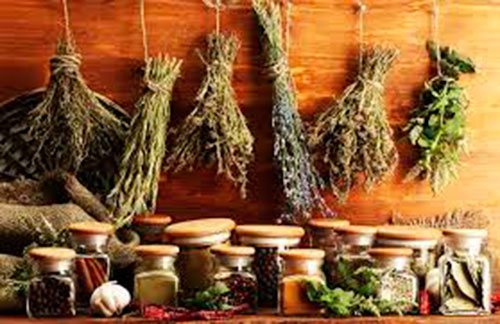

Using medicinal herbs
Prepare an infusion of five carrots, two apples, one bunch of parsley, two small cauliflower inflorescences. This whole mixture should be drunk three times a day, thirty minutes before eating.
Mummy is considered a very good remedy. Take one gram of mummy and dilute in one liter of warm water. Take about one hundred milliliters once a day.
Celery based recipe. Squeeze the juice out of it and take about one or two teaspoons three times a day.
Recipe based on pharmacy chamomile. Pour hot water over one tablespoon of its inflorescences, wrap and leave for about twenty to thirty minutes. Then take one tablespoon two or four times a day. Also, nettle, which is easy to find in pharmacies, is quite suitable for such purposes.
Ficus poisonous or not
For a long time, people did not manage to find out for sure about the toxicity or non-toxicity of a flower. However, not so long ago, having come to grips with this issue, experts still managed to prove for sure the fact that ficus is a poisonous plant... True, you should not panic in advance and get rid of the flower.
To begin with, it must be said that experienced gardeners recommend that beginners, "working" with ficus, be sure to wear gloves. Few people know, but the juice of elastic ficus contains about 40% rubber. This means that when milk comes into contact with unprotected skin, various allergic reactions can occur. The dermis begins to itch, tingle. In special cases, even blisters appear on the skin. However, working with gloves, none of this will happen.Therefore, there is no cause for concern or panic.
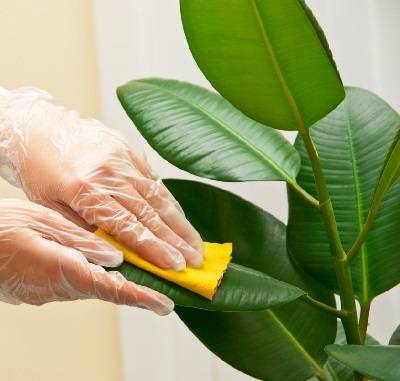

The only caveat is that the opinions of doctors as to whether to keep the rubber plant in a house where there are allergy sufferers or not to keep it, differ. Some experts say that people suffering from latex allergies should generally stay away from the flower. This is due to the fact that the juice from the plant can be released not only during transplantation, pruning, crown formation, but also at the time of damage, as well as ficus disease. Say, allergy sufferers smell irritants a mile away, as a result of which their health worsens. This is partly true, but only partly. An allergic person can keep a flower in the kitchen or corridor, and during the release of juice, wear a special mask, process the cut with chiseled coal to stop the release of milk. After that, you should wash your face thoroughly, wash your hands well and forget about your allergies. Therefore, it makes no sense to deny yourself the joy of keeping flowers that you like, since this will not affect allergies in any way.
Important! Allergy sufferers, while "working" with figs, must adhere to increased safety rules so as not to "wake up" the allergen.
Diagnostics
The initial task is to visit an allergist, as only a doctor can determine an accurate diagnosis. It is important to tune in to the fact that a lengthy preliminary interview with your doctor will be required. The specialist will try to collect as much information as possible about the characteristics of the health of a sick person in order to determine an accurate diagnosis and decide on further treatment.
After that, you will need to pass a clinical blood test, make samples for various allergens. These techniques make it possible to understand what still provokes a negative response from the immune system. It is assumed that it is necessary to introduce a minimum dosage of various allergens to further monitor the immune response and determine the reasons why unwanted symptoms appear. After that, the course of treatment begins.
Is ficus poisonous to animals
Animals are quite intelligent creatures. However, not always young cats, dogs, hamsters and others can see the danger lurking in the flower. For pets, ficus is poisonous, as well as for people. You need to understand that a person simply touches the milky juice with his hands (if he does), and the animal tastes it.
Therefore, it is best to put such plants somewhere on furniture, where there is no access to pets. Although, as practice shows, animals practically do not show interest in this flower. The reason is that in most species the leaf plates are dense, sinewy, and in some, on the contrary, they are small and inconspicuous. Neither cats nor dogs are interested in such plants.
Poisoning symptoms in dogs
Each owner should know what signs accompany the poisoning of the animal, so that when they appear, they can take action as soon as possible and take the pet to the veterinary clinic. These include:
- Weakness, drowsiness, depression;
- Vomiting;
- Diarrhea;
- Profuse salivation;
- Seizures;
- Rapid breathing.
To keep the plants intact and the dog's health in order, wean the pet from eating leaves, bark and branches.
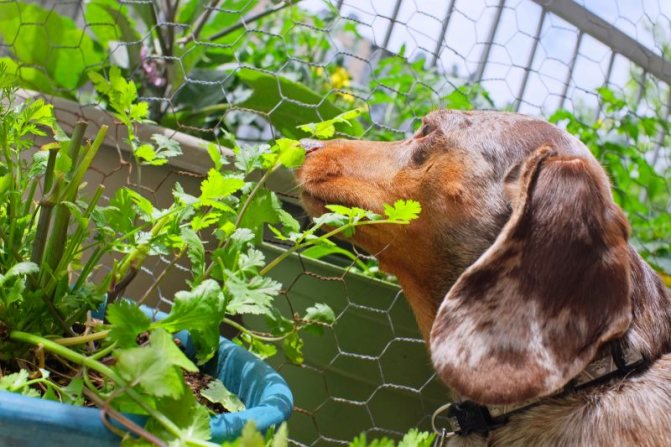

Subscribe to our newsletter and get a free veterinarian consultation
Thanks for subscribing!
Ficus and children
With older children, everything is clear, they are more interested in computer games than some kind of indoor flowers, which cannot be said about kids. For a small child, everything is of interest. He absolutely does not care what to touch with his hands or take in his mouth. The plant does not carry a mortal danger, but it can be poisoned by it.
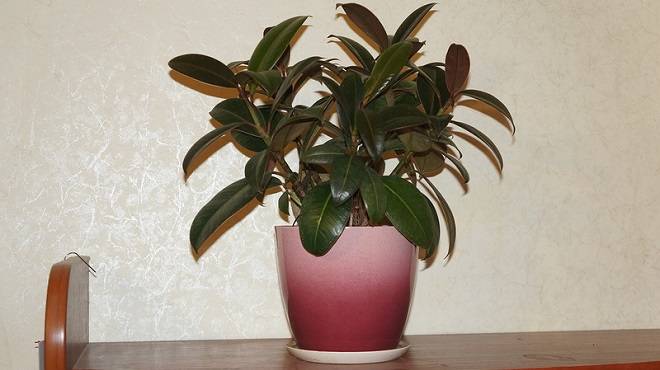

Important! The ficus pot must be kept away from young children.
Some gardeners, if their flower grows in large tubs, temporarily put them in the bathroom or hide them in some corner where the kids do not have access.
Of course, Benjamin's ficus and other specimens will not "be happy" about the rearrangement, but given that this is a forced and temporary measure, nothing bad will happen to the flower.
Photo
For those who want to grow this wonderful plant at home, we suggest reading these articles:
- Diseases and pests of ficus.
- How to grow Benjamin at home?
- Features of plant transplantation.
- Breeding secrets.
What are the benefits of a plant
Many people may think that since the leaves are toxic, sap is released from them, which causes allergies, which means that there can be nothing good in the plant. This is not true. Ficus is in great demand in folk medicine. In some countries (in the homeland of the flower), a large number of various medicinal tinctures are made from it. Moreover, the most valuable is that which is poisonous - ficus juice.
The flower allows you to deal with
- vascular diseases;
- bowel disorders;
- ailments of the lungs;
- warts, calluses and wen;
- hemorrhoids.
Ficus is also in great demand in industrial sectors.
It is used to make:
- fructose;
- tinctures;
- rubber;
- construction material
- medicines;
- rough cloth
- glucose;
- animal feed.
Home benefits
Ficus is a plant that has beneficial properties and contraindications. Heat-loving, grows in tropical countries.
But in nature it can also be found in the Transcaucasia, Central Asia and the Crimea.
A plant can become not only a decoration for an apartment, but also bring benefits and harm to the house. Ficus - how is it useful?
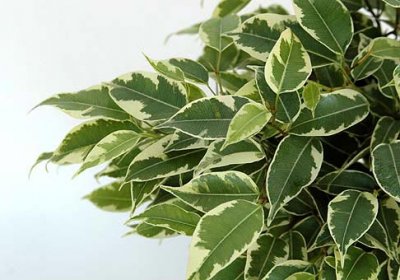

Useful properties of ficus for the home:
- rubber;
- glucose, fructose;
- medicinal raw materials;
- tinctures and mixtures of ficus leaves and juice;
- improves the microclimate of the room, cleans the air from harmful substances;
- building material for roofs of houses and sheds;
- rough fabrics;
- food for animals, birds and insects;
- "Living bridge".
Interesting Ficus Facts
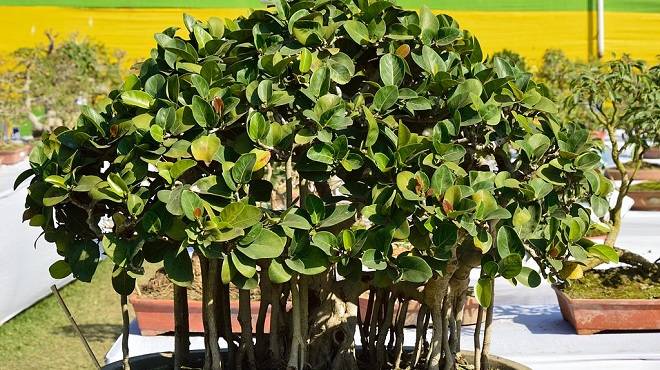

Despite the fact that the ficus is poisonous, people still try to buy this flower. Many do not know, but interesting moments are associated with this plant.
They are as follows:
- Ficus has been called the "family flower" for a long time. The women were sure that the new plant promises replenishment in the family. Even today, girls associate their interesting position with the appearance of sprouts on a plant. The reason may be that the ficus contains phytohormones. And these substances have a beneficial effect on the reproductive system.
- A ficus placed in the bedroom will allow you to forget about insomnia. If the plant is installed in the kitchen, then financial well-being will await the owners.
- Scientists have proven that ficus plants are good at transforming negative emotions into positive ones. This is attributed to the fact that the flower absorbs formaldehyde well. This colorless gas is emitted by plastic and plastics, which cause a lot of unpleasant moments.
- Ficus gives happiness and health. Not only does this plant cleanse the air well, it also improves the aura of the house - this is what many esotericists believe. By placing it in your home, you can protect yourself from envy and anger.
Having figured out whether the ficus is poisonous or not, everyone has the right to decide for himself whether to buy a similar type of flower for him or to look at something else.
Only one thing can be said for sure - it is not important whether the ficus is poisonous, but how to handle it. By taking proper care of the flower and observing the most elementary precautions, the plant will not do any harm.
Evergreen flower reaction
Ficus has become popular again in homes and offices, it is still loved for its unique comfort and warmth. Young people, looking at this plant, imagine the interiors of their grandmothers and great-grandmothers, it helps the elderly to travel back to childhood.
Allergists note that ficus allergy is relatively rare, but it is still one of the top three allergens. The reason for the specific reaction of the organism to any plant of this species is the particles of sap (latex) secreted by the plant and containing rubber.
Symptoms
You can be sure that the ficus acts on a person as an allergen if, against the background of normal temperature in the room where this plant is located, unexpectedly occur:
- frequent dry cough, profuse runny nose;
- lacrimation and redness of the eyes;
- itchy skin.
Ficus Benjamin is especially loved by those who are fond of breeding indoor plants, but provoke the most severe symptoms. Despite the fact that it is beautiful and unpretentious, it is the most poisonous among the ficuses. It contains more than 10 strong allergens: the plant contains essential oils, and its latex contains 35-40% rubber. People prone to allergies should not come into contact with this plant. It's best not to keep it in the house.
Most often, an allergy to ficus occurs periodically and passes quickly. However, sometimes the bad condition lasts longer, can cause fever, worsen the general condition, and sometimes lead to the development of respiratory failure.
Therefore, these plants should not be grown in an apartment or house where there are children. Allergy symptoms are more severe in children than in adults, since tissues and organs must grow vigorously, and not spend all their strength on the constant struggle with the disease.
The action of allergens has a depressing effect on the well-being and development of the child. Rashes and rashes on the skin can turn into weeping eczema, which often takes years to heal.
The need for constant adherence to a strict diet (in order to alleviate the condition) leads to a lack of essential nutrients and vitamins that are required for the formation of a child's body.
Important! The child should not be allowed to touch the ficuses growing in the lobbies of the premises or conservatories.
Medication treatment
The treatment process takes place in three stages - the use of drugs, folk recipes and diet.
Quinoa trouble. Weed allergy: what not to eat


As medications are used:
- Antihistamines in a dosage determined by the duration and severity of the disease - Claritin, Loratadin;
- Nasal drops for rhinitis (Naphthyzin);
- For prevention, as well as at the initial stage of allergies, the antiallergic drug Cromoglycate is used;
- For the rapid elimination of toxins - sorbents, such as Polysorb.
Folk remedies
A decoction of chamomile is easy to prepare and resembles the method of brewing tea: 1 tbsp. collection is poured with hot, but not boiling water, insist 20-30 minutes, filter and take 1 tbsp. l. 4-6 times a day. You can also make a mummy solution: 1 g of the substance is dissolved in 1 liter of warm water and taken in 100-150 ml once a day.
Important! The use of folk remedies is supportive and does not cancel drugs.
Benefit
Ficus is a useful plant, both for home and for humans.
Positive qualities for the home:
- Rubber.
- Glucose, fructose.
- Medicinal raw materials.
- Air cleaning.
- Improving the microclimate of all rooms.
- Building material for roofs.
- Rough cloth.
- Food for insects, birds.
- "Living" bridge.
A "live" bridge is created from the roots of the ficus tree. Better than wood in strength. Withstands up to 50 people. Length up to 30 meters. Minus - it takes a long time to build. Plus - eternal exploitation.
There are also benefits for people:
- Complement to the interior.
- The air is saturated with oxygen.
- Harmful substances are converted into amino acids useful to humans.
- Tinctures from the leaves of the plant treat joints, back, hematomas, and oncology.
- Acts as a pain reliever.
- Alcohol medicines are prepared for mouthwash, against toothaches.
- Protection of premises from negative energy.
- Frozen juice heals hemorrhoids.
- Fight against dysentery, depression.
- Prevention of neoplasms (tumors).
- Treatment of cough, sciatica, arthritis.
Especially appreciated rubber ficus leaves - a useful plant in the field of traditional medicine. Tinctures from tree leaves treat fibroids, bruises, mechanical damage.They also make boils disappear (with the help of lotions), toothache, stomatitis (by rinsing).
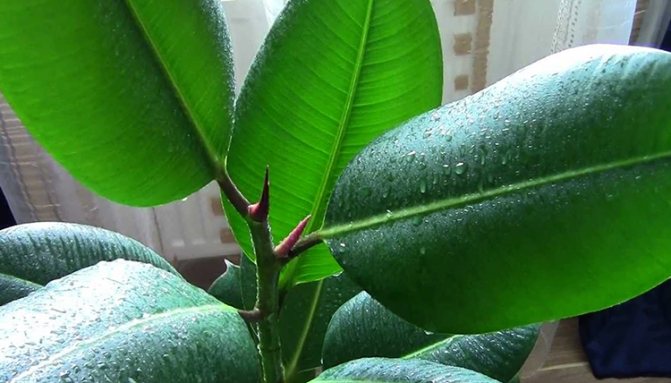

Some do not follow the norms in the manufacture of wallpaper, flooring. Because of this, vapors of harmful and toxic substances enter the air. Ficus is able to convert these "harmful" into useful amino acids.
In addition to the positive qualities, ficus has contraindications. Not everyone will be able to purchase this plant in an apartment.
- Allergen, is prohibited for asthmatics, as it provokes an allergic reaction.
- If juice gets on an open wound, you can get a skin disease.
- Forbidden as food for pets (fraught with poisoning).
Ficus Benjamin considered harmful (class 4 toxicity). The leaves are poisonous. Children and animals are best kept away from the plant. The tree is not left in the nursery. They hide him away from cats, because the feline family loves to feast on room flora. An animal can die from a snack on green leaves.
Testimonials


Natalia
Ficus is a wonderful plant. A friend gave it to me for the new year. A year later, on the same holiday, I told her wonderful news - I got pregnant, which I had long dreamed of. I believe that the tree helped me.
Olga
The tree is very beautiful, albeit moody. If he doesn’t like something, he can throw off all the pieces of paper! Then don't expect good from him. Only with good care can you hope that the tree will help.
Maria
My ficus grows well, literally flourishes. But I can't give birth to a baby yet. It helps a lot, perhaps, and luck awaits me.
The benefits of home ficus for people
This flower is not just a part of the interior; gardeners can tell a lot about its merits. Let's take a look at the main ones:
- Purification of the air in the apartment, saturation with oxygen, processing of harmful substances into amino acids.
- Healing property in the treatment of oncology, diseases of the joints, back, female ailments, hematomas: a decoction is prepared from the leaves and, depending on the type of problem, it is applied to sore spots or taken internally. The most healing properties in relation to human health are possessed by the rubbery variety of the plant.
- Frozen juice from it is useful as a raw material in the treatment of hemorrhoids.
- It is an excellent base for alcoholic medicines that treat diseases of the oral cavity and toothaches by rinsing.
- According to popular beliefs, ficus is a powerful energy protection of a house from evil forces (according to popular belief).
Ficus leaf treatment
Let's get acquainted with some types of diseases and recipes for their treatment using the healing features of ficus leaves.
Common osteochondrosis
Spine diseases bother many, limiting their movements and creating inconvenience. If you have neck pain or suddenly have an attack of sciatica, it is usually advised to see a specialist. This is definitely necessary. But you can relieve discomfort and pain using a decoction of ficus leaves.
Recipe number 1
- Choose a ficus leaf, grind it to a mushy state.
- Add a tablespoon of honey and salt to the mass.
- Stir and let it brew for about 30 minutes.
- Then mix this mixture until smooth and you can use it for treatment by wrapping the gruel in several layers of gauze and applying it to the sore spot.
You can use a band-aid by attaching this bandage to your body. It is enough to carry out 2-4 procedures within an hour to reduce the pain syndrome.
Recipe number 2
- You can also take three leaves of ficus, chopping them into small pieces.
- Then add 300 grams of alcohol and 10 ml of iodine and camphor oil.
- Shake the container with the contents thoroughly and leave for three weeks in a cool place.
After this time, use the rubbing liquid.
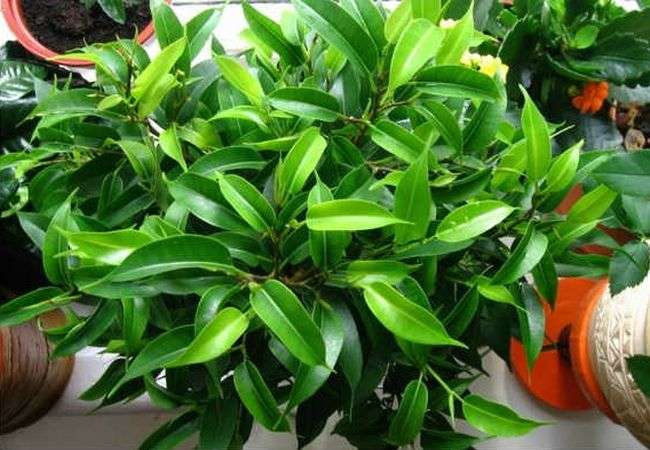

Diarrhea
An ailment that, as a rule, can occur suddenly and causes a lot of suffering.Therefore, the presence of ficus at home can help without waiting for medication.
Recipe number 1
- You need to take 4-5 leaves of ficus, scroll through a meat grinder or grind in a blender.
- Next, squeeze the juice out of the resulting mass.
- Add one teaspoon of honey.
Take the resulting mixture for the first three days, two tablespoons every two hours before eating. Then you can reduce the intake to 3 times a day.
The disadvantage of this tincture is the short storage period. Therefore, many people prefer to make an alcoholic tincture based on ficus leaves.
Recipe number 2
- Take 1-2 large leaves of ficus, get juice in the above way.
- You will get about 50-60 g of juice, add half a glass of 70% alcohol and let it brew in the refrigerator for 2 days.
Then take 1 tbsp. spoon every two hours up to 5 times a day.
Hematomas
A rather frequent nuisance, especially in a family where there are fidgety children who manage to hit something at the most unexpected moment, after which a "bruise" appears. And here also home ficus can come to the rescue.
- It is necessary in the already known way to get one tablespoon of ficus juice, add three tablespoons of flour and honey and knead the dough.
- Form a cake from it and attach it to the sore spot, fixing it with a plaster overnight.
Perform this procedure until recovery.
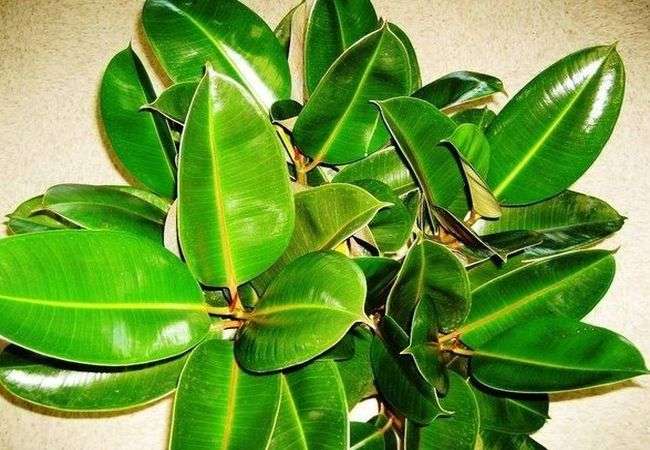

Joint treatment
The fact that ficus is used to treat joints, for many, will be a way out of the state of constantly accompanying pain, which greatly complicates daily life. For such suffering people, it is best to keep pre-prepared tinctures in the refrigerator.
Recipe number 1
- Take a half-liter jar and fill it to the top with chopped ficus leaves.
- Pour in vodka, close the jar and put in a warm place for three weeks.
- Then strain the tincture and put it in the refrigerator for storage.
Before using the tincture, it is advisable to take a hot bath with the addition of rock salt. And after the bath, apply a cloth soaked in tincture on the sore spot, wrapping the joint with a woolen bandage.
Recipe number 2
Everyone knows the "cabbage leaf" method used to relieve arthritic pain. The ficus leaf can also perform exactly the same function. It can be applied to a sore joint, secured with a bandage and not removed as much as you can not leave the house, without even taking it off at night.
Recipe number 3
- For this tincture, you need to take a bottle of 9% vinegar, chopped ficus leaf and 5 pods of hot pepper.
- This mixture is placed in a dark place for a week.
After the straining procedure, you can use the tincture as a compress or as a rubbing.
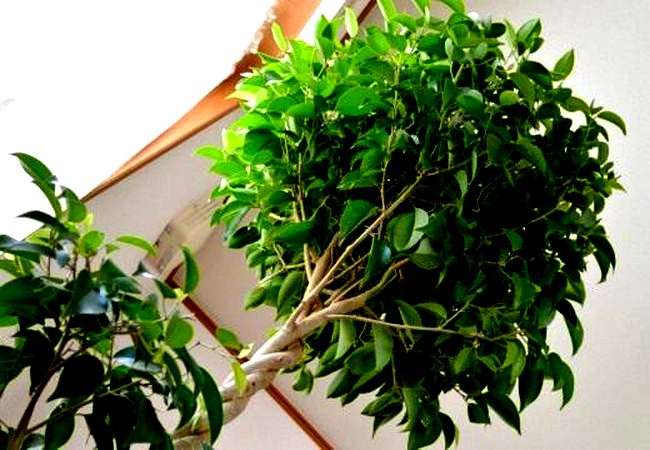

Colds
If you have a cold and are coughing, traditional medicine recipes advise the following getting rid of ailments.
Recipe number 1
- Take 2 ficus leaves and boil them for three minutes.
- Next, spread the leaves with honey and put on the chest, wrapping the body with a woolen scarf or scarf to secure the leaves.
Leave the compress overnight.
Recipe number 2
- Boil 2 ficus leaves for about three minutes.
- Dry the leaves and wrap with gauze dipped in hot vodka.
- Place the leaves on your back and chest. Wrap a scarf around the body and leave until morning. You can use this procedure until your condition is relieved.
The presence of such an interesting plant as ficus in your home will not only refresh the air of your home, but also help in difficult times to cope with various ailments, making your life more comfortable and calm.
Free book “Orchids. A Practical Guide "Book" Home First Aid Kit for Orchids "
Why is ficus useful? The healing properties of ficus. Treatment of mastopathy, treatment of sciatica, treatment of sore pain, treatment of bruises, treatment of corns.
Ficus grows in Africa, Southeast Asia.Today there are about 800 species of this plant; 20 species are considered cultivated, among them the most common houseplant is ampelous ficus. For us, the indoor ficus carica (fig) is of the greatest interest. Its fruits are widely used and known to everyone, these are the so-called wine berries, figs, figs, figs.
Ficus attracts with its bright greenery, is a wonderful decor in an apartment, office space, winter garden.
Crown pruning is done in the spring, giving it the desired appearance, several weeks before transplanting.
❧ The first rubber (rubber) was extracted from the juice of Brazilian hevea, many people know about it. There are also rubbery species among the ficuses. They are specially grown on plantations in Southeast Asia for rubber production.
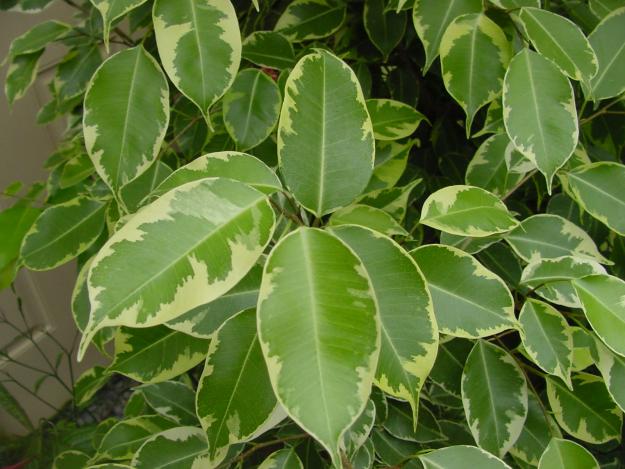

The chemical composition of ficus carica includes biologically active substances, namely: flavonoids (rutin), furocoumarins (lupeol, mannoheptulose and sedoheptulose); psoralen and bergapten, palmitic acid, trioxysteroid saponin (ficusogenin), essential oil. In folk medicine, ficus is used as an anti-cancer agent. A decoction of the leaves is used as a pain reliever, it helps to reduce hemorrhoids, warts. Compound fruits are used to improve digestion and mildly stimulate lactation in women. Infusions are used for rinsing the mouth, poultices for colds, softening abscesses and tumors.
In ampelous ficus, leaves are used to treat carbuncles, dysentery. For hemorrhoids, dried leaves are practiced; stems - with furunculosis, rheumatism, laryngeal ulcers. Ficus stem juice is used for dysentery, skin diseases, back pain, hemorrhoids, indigestion and tuberculosis. The decoction of the roots helps with inflammation of the bladder and urinary disorders.
In the medicine of eastern countries, ficus preparations increase the sexual capabilities of men. It is also believed that taking this plant internally relieves pain in the heart, prevents the risk of cancer.
Among other things, ficus is very beautiful and cleans the air in the room. It absorbs trichlorethylene, phenol, benzene. There is also a belief that if there are no children in the family, and the spouses really want them, you need to plant and grow a ficus, and after a while a child will appear in the family.
Ficus juice for mastopathy
Composition: 2 leaves of ficus, honey.
Method of preparation: wash the leaves, twist through a meat grinder, add honey.
Method of application: take 1 tsp. 1 time a day at the same time in the morning or in the evening for 1 week, then interrupt the course for 14 days and repeat again.
Note: keep the medicine in the refrigerator.
Ficus tincture for radiculitis, osteochondrosis, arthritis
Ingredients: 1 leaf of ficus, 120 ml of vodka, 250 g of table salt.
Method of preparation: wash the leaf, mince it, add vodka. Insist 14 days in a cool dark place. Then filter with gauze, pour into a dark glass bottle, put in the refrigerator.
Method of application: take a warm bath with table salt, then rub the sore spots with infusion, tie them with a warm woolen scarf. The course of treatment can be up to 10 days.
Ficus cakes for mastopathy
Ingredients: 1 leaf of ficus, 1 tsp each. honey, flour.
Method of preparation: wash the leaf, mince it, add honey, flour, knead the cake.
Method of application: apply a cake to problem areas at night, fix with a bandage. Do it within 1 week, then interrupt the treatment for 14 days and repeat again.
Ficus with boils
Composition: 2 leaves of ficus.
Method of preparation: grind the leaves into gruel.
How to use: put the gruel from the leaves on the inflamed area, tie with a bandage overnight. The next day, repeat everything. After the 2nd use of the ficus, pus will come out.
Ficus tincture for toothache
Composition: 20 g of fresh juice from ficus leaves, 100 ml of 70% ethyl alcohol.
Method of preparation: mix juice and alcohol, refrigerate for 2 days.
Method of application: take the infusion into a pipette, carefully drop it into the hollow of a diseased tooth, without falling on the gum.
Ficus cakes against bruises
Ingredients: 1 leaf of ficus, 1 tsp each. honey, flour.
Method of preparation: wash the leaf, mince it, mix with honey and flour, make a flat cake.
How to use: apply the cake to the bruise at night, tie it with a warm cloth.
Ficus ice for bruises
Ingredients: 3 ficus leaves, water.
Method of preparation: cut the leaves, add a little water, boil for 5 minutes. Cool the broth, strain, pour into freezer molds, refrigerate.
Method of application: apply a piece of ice to the bruise, hold for 10 minutes.
Ficus gruel from corns
Composition: 1 leaf of ficus, 50 ml of 70% acetic acid solution.
Method of preparation: wash the leaf, pass through a meat grinder, mix with vinegar.
Method of application: put the mixture on cheesecloth, gently apply to the corn, secure the cheesecloth with a plaster. After 24 hours, remove the patch, carefully remove the corn. In the event that the corn is not removed, repeat the procedure again.
Similar articles:
Calluses on the feet. Means for the treatment of corns
What plants stimulate spiritual quest?
Are there vampire plants?
What plants can help cope with melancholy and depression?
Ficus, care
No comments yet. Yours will be the first!
Ficus is one of the most popular plants in city apartments. People began to grow it in their homes so long ago that it acquired its own myths, became a participant in acceptance and belief, one of the materials in folk medicine. Now it is already difficult to figure out which properties of a plant really exist, and which were invented by our ancestors. Consider what is ficus, benefit and harm to humanscaused by this plant and other interesting features.
What other properties does
For diseases of the female reproductive system, traditional medicine advises taking a tincture of 1 tsp. a day, regardless of food for seven days, after half a month can be repeated. For fibroids, raw ficus juice is useful. Frozen juice or crushed ficus leaves are used to treat bruises and mechanical damage. A sheet with crushed gruel is applied to the boil, then a dressing is done. In the morning, pus comes out of it.
The usefulness of a flower is also determined by its type. As mentioned above, large leaves of rubber ficus are of the greatest value in folk medicine.
As for esotericism, it all depends on what you yourself believe in. There is an opinion that ficus should be purchased exclusively for the growing moon, and it is imperative to give the donor something in return. A flower received free of charge will only bring trouble to the new owner in the house. So give thanks to the one who gives you the flower, at least symbolically.
Features of ficuses
Numbering several hundred varieties, of which only twenty are domesticated and grown at home, the ficus took root in the home environment of an apartment and began to be used not only in the interior of the house, but also for medicinal purposes. Some species are best known among others for their unique properties and their ability to help our health:
- rubbery ficus has established itself because of the milky juice it contains,
- Benjamin's flower found its patients among expectant mothers, the ampelous type of plant is used in the treatment of disorders of the gastrointestinal tract,
- ficus carica is known in the fight against cancer.
Despite the beneficial properties of ficuses, widely used in traditional and folk medicine, it has a number of contraindications that should be considered when treating with a plant:
children and pregnant women do not resort to the help of ficus and do not use decoctions from a flower,
infusions prepared with ficus for internal use are contraindicated for people who have problems with the heart muscle and dysfunction of the stomach.
Many are interested in whether indoor ficus is harmful to pets, therefore it must be remembered that some flowers are toxic to cats and dogs. Among them is the Chinese look.
In other cases, the ficus does not harm a person and his health.
How to transplant.
As you noted earlier, at an early age, young ficus bushes will need to be replanted annually. This is best done in the spring or summer. But transplanting adult plants will need to be very careful and only when necessary. This is usually done no more often than once every few years. If the soil in the pot is too depleted, then it is advisable to change it. And do not forget to put drainage at the bottom of the pot so that in the future excess moisture will move away from the roots. Each time, the new pot should be a few centimeters larger and deeper than the previous one. If the ficus bush is too old, then it is undesirable to transplant it, otherwise the plant may completely die. Many gardeners believe that it is not necessary to transplant ficus at all if it is not cramped in the pot. In order to enrich the soil with useful substances, you can simply change the top layer of the earth every year. Also, in order to enrich the soil with useful micronutrients, add peat, sod and leafy soil to the earthen mixture. Suitable for structuring soil and sand. If you do not want to mess with the land, you can buy a ready-made mixture, usually it can be purchased at any specialized garden center or agricultural store. You can also transplant ficus into universal soil, but do not forget to add a little sand there. It is also good to put some drainage in the pot. If you are replanting plants, then do it using the transhipment method. It is recommended to fill the voids in the pot with fresh soil.
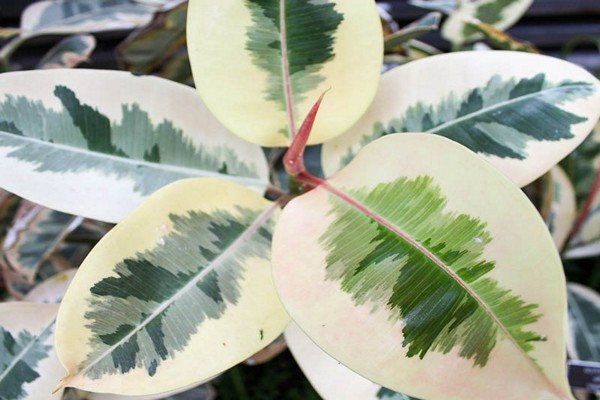

Is it possible to put ficus in the bedroom
According to experts, the plant can stand in any room. Is the bedroom suitable for this:
- Philosophers from Ancient China advised placing a flower next to the bed. The use of ficus in the bedroom is that it purifies the air, a person's sleep is normalized, sleepless nights remain in the past.
- Ficus is considered to be a beneficial herb that helps to cope with infertility. Therefore, it is placed in the bedroom, in the immediate vicinity of the matrimonial bed.
Believe it or not, it's everyone's business. But those people who managed to conceive a child look at the ficus with affection as a savior.
What if the cat ate a dangerous flower?
If the cat begins to show symptoms of poisoning, then it is necessary to contact the veterinarian as soon as possible. When contacting, it is advisable to know which flower the pet liked to taste in order to tell the doctor about it and get a more accurate appointment of a specialist for treatment. First aid can be provided at home before going to the doctor - induce vomiting with saline solution no later than 2 hours after the incident, and also give the drug "Adsorbent".
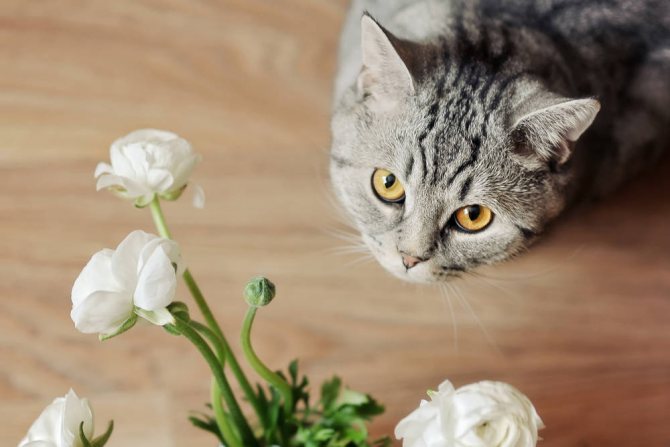

Can ficus be kept at home?
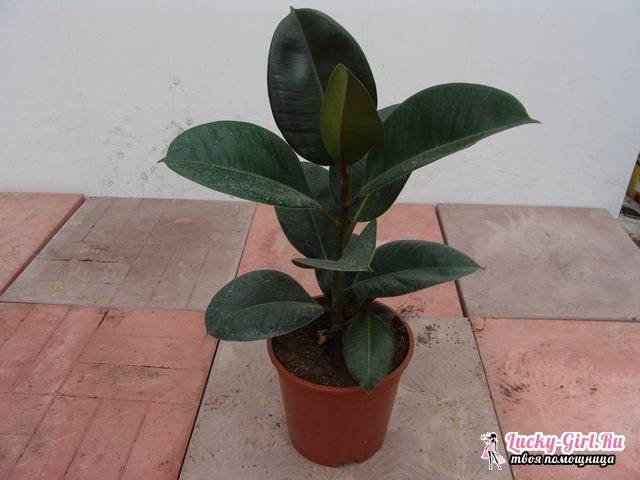

Ficus is a useful houseplant. Like any other indoor flower, it purifies the air. Moreover the influence of ficus extends not only to harmful compounds, for example, benzene and formaldehyde, but also to bacteria... The content of the latter in the room due to the presence of ficus is reduced by more than 40 percent.
In a number of countries, ficus is actively used to treat many diseases. It can help with female problems - mastopathy and benign tumors of the uterus. The flower is used for the preparation of infusions and decoctions. Ficus is also used for pneumonia and bronchitis. The leaves are boiled down and made into compresses.
Superstitious people are most likely interested in the question: is it possible to keep a ficus at home? This plant is considered not only a harbinger of happiness. In many cultures, it symbolizes wisdom. Perhaps that is why its leaves are used to create incense, which is burned during meditation.
According to Ayurveda, ficus is a must in living quarters.... It restores energy balance, establishes harmony and relieves anxiety.
Ficus at home is definitely a good thing. The plant is not poisonous and can be kept indoors with children and animals. The only limitation when growing ficus at home is a cautious attitude towards a certain species of it, rubber ficus. The fact is that the plant releases rubber into the air, which provokes attacks in asthmatics. Therefore, if there is a person in the house with asthma, then it is better to refuse this plant.
There are other types of ficuses that emit droplets of milky juice. Getting on the skin of people with individual intolerance, they cause irritation. For asthmatics, these secretions act in the same way as the secretions of Rubber ficus.... You should not grow ficus for allergy sufferers. If the desire to have this plant at home is great, then you should listen to your feelings.
Possible problems.
If you take the wrong care of the plant, then you may encounter various problems. Sometimes the foliage begins to fly around the ficus. If you notice that the leaf plates from below begin to fall off, then you should not sound the alarm. When the plant grows old, this process is considered a regularity, but if the leaf plates fly over from above, then this indicates possible problems. For example, an earthen lump is too dry, perhaps, on the contrary, too moist, so adjust the watering regime. If the foliage begins to turn yellow, and eventually die off and fall off, then perhaps this also indicates overly intense or poor watering. And sometimes this signals an insufficient content of nutrients in the soil. Therefore, consider feeding. It is also recommended to rinse the substrate in order to improve the structure of the soil. After this procedure, it is not recommended to feed the plants for 2 months. Sometimes the foliage begins to turn yellow even if a lot of salt has accumulated in the soil. If you notice this, then it is advisable to transplant the flower into a new pot with new soil mixture.
Sometimes the foliage turns yellow, and if the flower is too spacious in the pot, in order to get rid of these unfavorable phenomena, transplant the plant into a container with a smaller volume. Sometimes the foliage turns yellow even if rot begins to appear on the root system. In order to determine this, you just need to carefully examine the topsoil, smell it. If your suspicions are confirmed, then it is advisable to transplant the plant, freeing the roots from the old earth, and also removing rot from the roots. However, sometimes the plant cannot be saved, so you can turn the old ficus into new cuttings and propagate it by using cuttings. If you notice that the ficus bush does not grow for a very long time, then this most often indicates a lack of nutrients in the soil. It is also possible that the plant simply does not have enough sunlight, so change the location of the pot. Sometimes the lack of growth suggests that the roots have become cramped in the old container, so it's time to transplant the ficus.
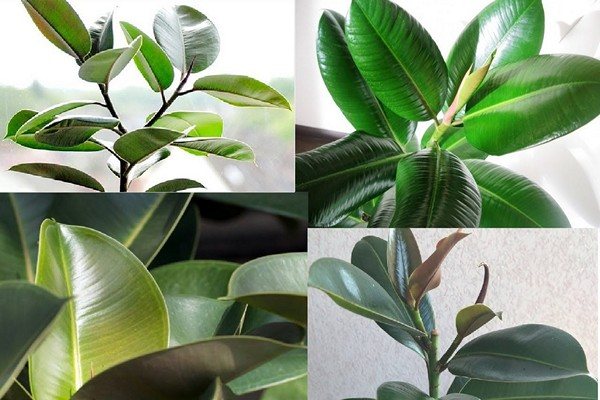

How to trim.
As you remember, ficus grows quite intensively under favorable conditions. The leaf mass increases rapidly. However, over time, the lower foliage begins to fall off. Bushes are pruned in order to restrain the development of this culture. Many growers, in order for the ficus to form lateral shoots, pinch the plants up, unfortunately, this event will not add branching.Perhaps, after this procedure, the upper bud will begin to awaken, but the lateral shoots will not form. Usually, several internodes are cut during pruning. If the top of the bush stretches too far, you can remove it. But do not throw this cutting away, it is quite possible to root it and get a new plant out of it. When, in your opinion, the shoots are as high as possible (for your apartment), then the upper part of the plant should be cut again.
It is recommended to prune the bushes in early spring, if you do it later, then the lateral shoots will not develop again, and the ficus will start growing up again. The trimming tool should be disinfected before use. The knife must be sharp. It is advisable to remove the juice that will be released after this procedure. If you want to grow lush bushes, then you can plant several ficuses in one pot. At first, the plants are recommended to be placed in slightly shaded places, moreover, it is recommended to turn the bushes periodically, so that the shoots develop evenly, are even and beautiful. And if you do not do this, then the bush will reach for the light, which means that the decorative appearance of the plant may lose. You can completely plant a ficus in a container. However, it can also be made more bushy. It is advisable to wake up inactive buds in time; for this, try to cut the plants as we advised you earlier.
Sometimes the trunk is pierced in order to increase the splendor of the plant. Moreover, the depth of this puncture should not be more than 1/3 of the width of the stem. They begin to carry out this procedure from the top, ending with the base of the bush. Sometimes the top of a young plant is specially tilted to the bottom, fixed on the surface of the soil, thus, the lateral shoots begin to awaken, which means that the bush will be more lush, but as soon as you notice that the buds have become active, the plant is recommended to be returned to its usual position, rest assured , lateral shoots will actively develop.
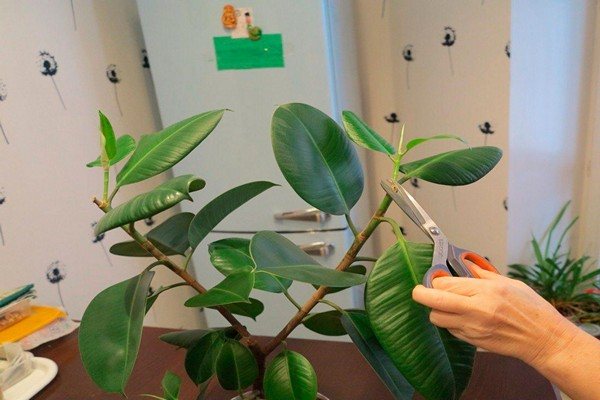

Special properties of ficus
Is ficus poisonous? Despite the negative properties of the plant, it also has magical properties. In the house of a married woman who wants to give birth to a child, but cannot conceive for some reason, this plant is planted. For this event to happen faster, it is necessary that the husband gave the ficus to the girl. There are cases when a woman became pregnant immediately after the appearance of a plant in an apartment.
It is good to grow ficus at home, because it has a positive effect on the energy of the home. He is able to cleanse the house of anger, worries, contributes to the acquisition of inner harmony and will help in the correct resolution of life's problems.
How to care.
If we talk about the level of illumination, but it should be noted: the ficus is a light-loving plant. But remember, direct sunlight negatively affects the foliage, so the light must be muffled, diffused. You can put a pot with this plant in partial shade. There it will grow and develop more slowly, perhaps the lower parts of the leaf plates will even begin to dry out, but the plant will become comfortable there over time. As we noted earlier, in spring and summer, it is best to grow ficus at a temperature of plus 21-25 degrees. If it is too hot in your apartment, then this will not harm the ficus in any way, however, such an increase in the degree should be short-lived. In winter, it is best to rearrange the plants to cool. But the air temperature should not drop too much. If we talk about watering this crop, then I recommend moistening the soil when the topsoil dries well. Usually in spring and summer, plants are watered up to 2 times a week. In winter and autumn, the watering regime should be adjusted, moreover, it is best to water the plants during this period no more often than once every 6-7 days.If you moisten the soil too much, foliage can fly around, so do not overdo it with moisture.
Indoor humidity should be high in spring and summer. It is recommended to often spray the leaf plates with lukewarm water. Also, do not forget to remove dust from the leaves in a timely manner, about once every 2 weeks. But once a month you can arrange a more intensive spraying, send the plants to the shower. But do not forget to protect the soil mixture by covering the pot with a film. In winter, it is not recommended to spray the foliage from a spray bottle. It is possible only occasionally during this period to wipe the sheet plates with a damp cloth. It is undesirable to put a pot of ficus near the battery and heaters. Fertilizing the soil is recommended in spring and summer, and it is best to do this no more than once every 2 weeks. Alternate the use of liquid organic matter and complex mineral fertilizers. Ficus loves nitrogen, don't forget about it. Very often, nitrophoska is introduced into the soil, and the plants are also fed with various settings, including mullein solution. It is best to feed the bushes with liquid fertilizers, and do not forget to loosen the soil in time. But the top dressing should not fall on the leaf plates, this negatively affects the development of leaves and shoots. If you want to polish the leaves, then try to wipe the sheet with non-alcoholic beer, but it is undesirable to use chemistry for this.
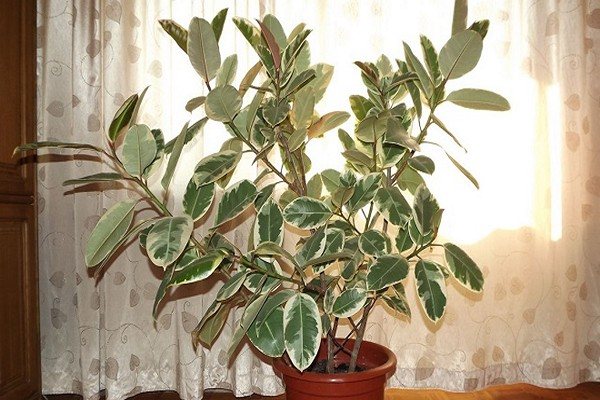

Precautions
Not all types of plants with fleshy leaves are harmless. For example, rubber ficus is dangerous for the health of people suffering from asthma and allergies. The fact is that plants release harmful rubber into the air, which causes shortness of breath in asthmatics, which is harmful to their condition.
Milky juice on contact with mucous membranes can cause irritation and itching.
Medicines with ficus juice will not benefit such categories of people:
- children under 18;
- pregnant women;
- people with gastrointestinal problems;
- allergy sufferers and asthmatics.
Reproduction.
Ficus can be propagated in different ways. And the most common method is grafting. Moreover, this method is considered the simplest and most effective. In order to get a cutting, you will need to cut off the top of the stem, the shoot should be no more than 15 cm in length. On each cutting, you will need to cut off all the leaves, leaving one pair of leaf plates. The juice oozing from the wound will need to be removed, the cut site should be rinsed with water, and this will need to be done until the sap flow stops. The cuttings are placed in containers with liquid, and in order to prevent moisture from evaporating from the surface of the foliage, they are recommended to be rolled up with a tube. You can fix them in this position with a regular rubber band. Of course, cuttings form a root system in water, but this process takes place faster when the cuttings are placed in a special mixture. In order to create a favorable microclimate, containers with cuttings are recommended to be covered with foil or glass. Usually from cuttings obtained in this way, full-fledged plants develop very quickly. There are no difficulties with acceleration. However, in certain subspecies of this culture, cuttings take root worse, so it is best to pre-treat them with a growth stimulant, so the root system is formed more intensively. You can also build a mini greenhouse for them, providing heating of the soil mixture from below. In some varieties, it should be noted that cuttings root very poorly, so it is better to propagate them in other ways.
Many subspecies of ficus are propagated using air layers. In order to grow new plants, you will need to make a special incision on the shoot, but not very deep. And so that the wound does not heal, a match is inserted there. And after that, these places will need to be wrapped in wet sphagnum, wrapped in foil and fixed with tape.Usually in such places air roots begin to form, through the transparent film you can easily determine the time when the roots will begin to break through. When the root system looks massive enough, it will be possible to separate this process below and plant it in a separate container. Ficus is often propagated by a leaf. This method is considered not very simple, therefore experienced gardeners consider this breeding method not entirely proven. However, some researchers claim that this method is considered to be effective. Try cutting one piece of leaf and sending it into a glass of water. Sometimes, after a certain period of time, roots begin to grow at the base. And after that, you can plant the plant in a separate pot, but very often the leaf plate does not have enough strength to form shoots, so such a mini plant will flaunt on your windowsill for more than one year, and a full-fledged plant from a leaf plate will never form.
How useful and harmful is ficus
Potted flowers can be seen in almost every apartment. Most are grown for decorative purposes, but there are also plants that can boast not only an attractive appearance. The article describes the benefits and harms of ficus, a popular inhabitant of our houses. So, is ficus harmful to humans or not?
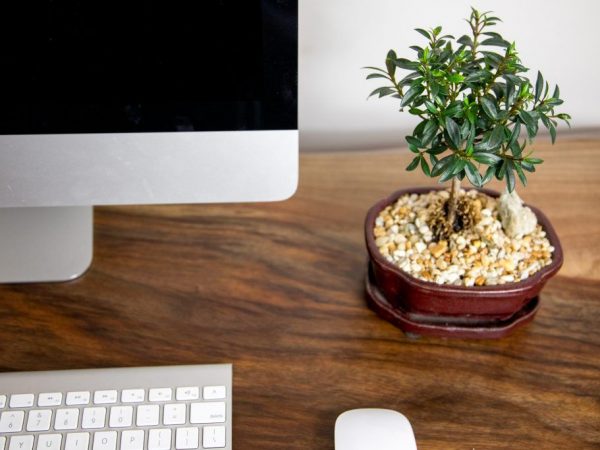

The benefits and harms of ficus for humans
Ficus varieties


Variety Rezhidan
The described plant belongs to the Mulberry family. Many people know it by another name - "weeping tree". The genus of ficus has many species. Sources call numbers from 8 to 9 hundred. All of them are distributed in different places of the planet, mostly in the tropics and subtropics. There are many ficuses in room culture: Rubber, Robusta, Melanie, etc.
Of all the varieties, it is Benjamin's ficus that is most often found in our homes. This tree is considered evergreen and in the wild it can reach even 20 m in height! The shoots of the plant are drooping, the leaves are of a beautiful green color, have a smooth, pleasant surface.
Ficus Benjamin includes many varieties. It is worth remembering the most common of them.
- Anastasia. The tree has dark green leaves with a lighter border and the same central vein.
- Baroque. The leaves of the variety are light in color, have a swirling shape.
- Daniel. The tree has very beautiful leaves with smooth edges. They are shiny, glossy, and the color is dark green, very intense.
- Dejantelle. This variety has variegated leaves with white and green tints.
- Exotic. It has dark leaves with slightly wavy edges.
- Golden king. Leaves are light green with a white, uneven edging.
- Viandi. The crown of the variety is not very different, but the trunk has a sinuous shape, resembling bonsai trees.
- Starlight. It has dark leaves, and the edging and spots are white, cream.
- Rezhidan. Lettuce leaves have dark spots in the middle.
- Natasha. This is a dwarf variety, its leaves are small, the crown is very compact, the internodes are shortened.
Ficus content
Is Benjamin's ficus poisonous or not? This will be discussed in the text below, and it is necessary to learn how to take care of the ficus correctly.
Such a plant does not like change at all. If the ficus was originally placed in a certain place where it grows well, then it should not be rearranged to another. In the summer, the ficus can be taken out under the open sky so that it begins to develop better, but then return to its original place.
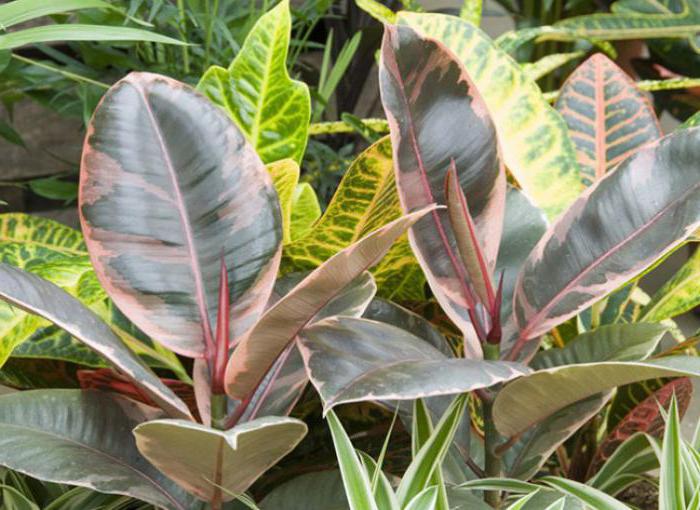

What the plant does not like at all is drafts. It should be located in well-lit places, so windows facing west or east are well suited for ficus.
A sign that a plant lacks light is a decrease in the number of leaves and their size.
The best temperature for him: in summer - 25-30 degrees, in winter - 15-20 degrees.It is not recommended to put ficus on a cold tile, window sill, in order to prevent the soil clod from cooling. Does not like the plant and sudden changes in temperature.
Potential harm from the plant
Is it poisonous or not?
Ficus "Benjamin" - is it poisonous or not for humans? This question worries many novice florists. The benefits of the ficus "Benjamin" are undoubtedly great, but not all the properties of the plant are so positive, there is also a "fly in the ointment".
This plant is considered harmless, but this is not entirely true. Ficus Benjamina belongs to the 4th class of toxicity, its leaves are poisonous and should be protected from direct contact with small children (hence the conclusion that the "nursery" is not the best habitat for ficus) and domestic animals, especially cats, since for them a light snack with tempting green leaves can be fatal.
Are there allergies?
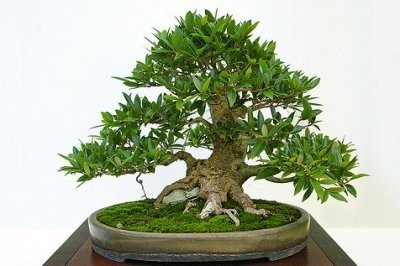

Among other things, many people are allergic to ficus "Benjamin", especially allergy sufferers.
The fact is that the plant secretes milk-white juice, it appears on the bark of the plant when the shoot or leaf is cut, it is called "milky" or "latex", it contains about 30-40 percent rubber.
People with an allergic reaction to latex should stay away from this green handsome man.
Ficus "Benjamina" ranks second among allergens after pets.
Harm and contraindications
The question of whether ficus is harmful to health is most often asked by owners of pets (cats, indoor dogs, hamsters) and mothers with small children. The fact is that the leaves of all varieties of this indoor flower contain poisonous milky juice, which is dangerous if it gets on the skin and mucous membranes. Ficus juice strongly irritates open wounds, causing itching and burning. It is also dangerous because babies or pets can accidentally chew poisonous leaves. Such experiments cause poisoning and intestinal disturbances.
The harm of a houseplant is also that it is considered a strong allergen. Because of this, flowers should not be placed in the rooms of allergy sufferers with bronchial asthma.
Important. When buying any sort of ficus at home, you need to make sure that none of the household members have an individual intolerance or allergy to this beautiful flower.
In addition to the dangerous milky juice, you should be careful with leaves for other reasons. So, it is forbidden to use homemade ficus tinctures or decoctions in the treatment of various diseases in the following cases:
- during pregnancy, breastfeeding;
- for the treatment of children and adolescents;
- if you have asthma;
- if gastritis is diagnosed or there are diseases of the gastrointestinal tract.
The harm of an indoor flower can be minimized if you do not put pots in the children's room, bedroom, remove them from the floor if there are children, cats, dogs at home.
Ficus care
Is ficus poisonous or not? The answer to this question can be obtained below, and the plant does not require increased attention. Watering a plant depends on its age, development, potting soil, temperature and environmental conditions. There is no definite and permanent watering schedule. It is imperative to adjust to the light, temperature, season and be sure to monitor the condition of the soil.
In summer, the plant is watered abundantly, but before that you need to make sure that the soil is dry. It is better to water the ficus from above, until excess liquid comes out into the pan. After a quarter of an hour, the remaining water must be drained.
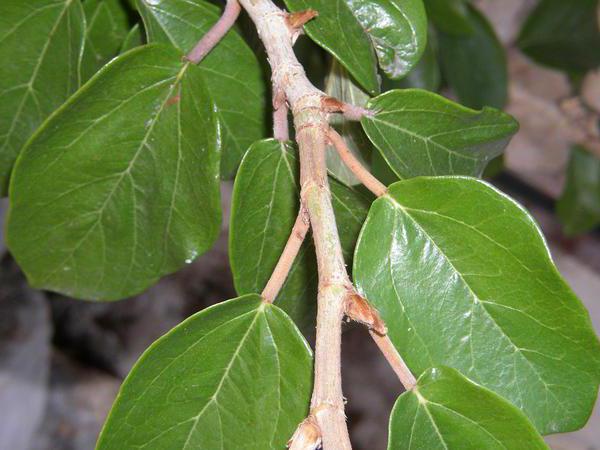

In winter, the plant is watered with care to prevent overflow. The optimum humidity for it is 70%, but it is not advisable to drop below 50% either. It is imperative to constantly spray the ficus, regardless of the season, and arrange a warm shower for it. The water should be warm and soft so as not to leave streaks on the leaves.
Dust that settles on the leaves must be regularly cleaned with a cloth from below and above. If you do not clean them, then the ficus will have difficulties with photosynthesis.
Dry leaves and twigs must be removed from the plant periodically.
Taking care of the ficus is not at all difficult, because it is very unpretentious.
Where is the best place to put a ficus in an apartment
Since ancient times, ficus has attracted flower growers, it was used to decorate the interior, taking into account its magical properties. In order for the plant to be beneficial, it is necessary to find the ideal place for it in the apartment.
Where can a flower pot stand in a house:
- In Feng Shui, the best place is the southeastern part of the house or apartment.
- Living room. In this room, not only households gather, but also guests for conversation and spending time together. The plant contributes to the creation of a pleasant atmosphere, has a positive effect on friendly communication.
- Personal Area . For people dreaming of a career, a flower with useful properties should be placed on the table in the office and at the workplace in the apartment. From the flower, according to psychics, positive energy emanates, which helps to fight insecurity.
- An ordinary room. If a person spends most of his time in a certain place in the apartment, then it is there that you need to put a pot with a useful flower. For people who react violently to any news and events, it is advisable to grow not one, but several ficuses.
- Kitchen . This is a good place for a plant. The fact is that the kitchen space needs constant air purification and oxygen enrichment.
Plant features
Before doubting whether ficus is harmful or not, you should first find out the basic facts about this tropical flower originally from hot countries. The homeland of ficus is the Mediterranean, it grows in nature and on the coasts of South Africa and the Indian Ocean. It belongs to the mulberry family and is an evergreen perennial plant. More than 1000 varieties are known with leaves and trunks of various shapes, sizes, colors.
The beneficial properties of an unpretentious flower were discovered many centuries ago. It was found that the owners of ficuses are less ill, are more likely to be in a good mood, and less likely to fall into depression. The leaves also purify the indoor air by filtering dust and unpleasant odors. But there are also unpleasant features - the stems and foliage of the plant contain dangerous milky sap, which causes skin irritation and poisoning of pets.
The most famous and common varieties in apartments are 6 varieties:
- Benjamin;
- Benedict;
- rubbery;
- dwarf;
- Bengal;
- lyre.
Important. All species love good lighting, being in a warm room as far away from drafts as possible, and do not tolerate frequent rearrangements from one place to another.
Good omens about ficus among different peoples
With regard to this indoor plant, the opinions of peoples and countries diverged, however, the overwhelming number of reviews is still directed in a positive direction.
For example, in China, they believe that ficus should be present in every family, so this flower is a frequent gift at various events.
The Chinese are sure that the plant gives vitality, gives strength and vigor, gives a good mood and supports physical and spiritual strength in elderly people. It not only helps to solve family problems, but also improves the material well-being of the owner.
In Thailand, the ficus is a state symbol and a sacred plant. Thais firmly believe in folk omens and superstitions, which speak of the unthinkable power of the rubber-bearing ficus and its protective properties against evil spirits.
In most countries, ficus is considered a positive plant capable of:
- strengthen the family hearth;
- solve problems of a very different nature;
- bring good luck and financial success;
- cleanse home energy;
- to establish spiritual harmony.
In the pre-revolutionary period, the ficus robusta was especially popular: it was grown in almost every home.Wealthy citizens and aristocrats believed that the flower brings good luck and wealth, helps to achieve their career goals and harmonize family relationships. Often the plant was placed in the bedroom to ward off bad dreams and improve the intimate life of spouses.
In the Holy Bible, the ficus is interpreted as a plant, a leaf of which was used as clothing for Adam and Eve after their expulsion from paradise. Thanks to this definition, believing Christians consider the ficus to be a guarantee of family happiness.

